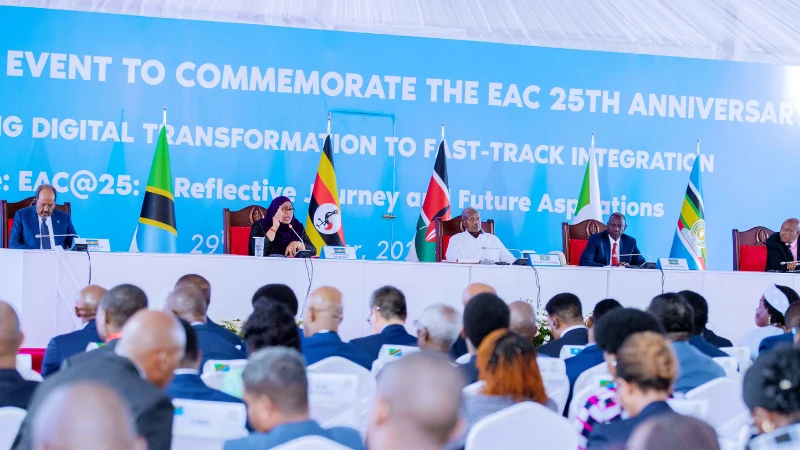Building trust: Security, transparency in customer service

IN today's rapidly evolving digital landscape, the importance of cybersecurity in the banking sector cannot be overstated. Cybersecurity Ventures predicts that cybercrime will cost the global economy a staggering $10.5 trillion annually by 2025.
As more customers transition to digital banking, they expect not only seamless experiences but also robust security measures that protect their sensitive information. Today's consumers are not just seeking convenience; they are increasingly concerned about the safety of their personal and financial data.
Tanzania has experienced a notable rise in the adoption of digital platforms, resulting in a heightened dependence on technology for various activities. This rapid digitalization has, in turn, led to an increase in cyber threats targeting Tanzanian users. As more individuals and businesses connect online, cybercriminals have seized new opportunities to exploit vulnerabilities.
The Government has made significant progress in enhancing cybersecurity measures within the country. Initiatives such as the National Cybersecurity Strategy have helped to enhance the national cybersecurity posture. The Personal Data Protection Commission (PDPC) plays a vital role in safeguarding the privacy and dignity of Tanzanians by overseeing compliance with the Personal Data Protection requirements.This initiative, along with other cybercrime laws, illustrates Tanzania's commitment to creating a safer online environment.
In 2024, Tanzania achieved a remarkable milestone by ranking first in Eastern, Southern, and Central Africa in the Global Cyber Security Index (GCI). The country received a perfect score across all five cybersecurity pillars: legal, technical, organisational, capacity building, and cooperation, placing it in Tier 1, alongside countries like the United States and the United Kingdom. This achievement reflects the government's dedication to cybersecurity, supported by effective legislation and establishing a functional computer emergency response team.
While Tanzania’s legislative measures play a vital role in enhancing cybersecurity, the responsibility for ensuring a secure digital environment does not rest solely with the government. All stakeholders have a role in protecting the digital landscape, including businesses, non-governmental organisations, and individual users. Each entity must actively contribute to a culture of security awareness, adopting best practices and investing in the necessary technology to mitigate risks.
Financial institutions, in particular, are crucial in this collaborative effort, as they handle sensitive information and significant transactions daily. By implementing robust cybersecurity protocols and maintaining transparent communication about security practices, these institutions can enhance the overall security posture of the nation.
Educational initiatives that promote cybersecurity awareness among the public can also empower users to recognize and report suspicious activities, further strengthening the digital ecosystem.
By collaborating with industry peers and cybersecurity experts, we can not only improve our own security protocols but also contribute to broader initiatives aimed at enhancing the overall resilience of the financial sector against cybercrime.
As we reflect on customer this month, with this year's theme of " Above and Beyond," it is crucial to recognize that exceptional customer service extends beyond just meeting expectations; it encompasses providing a secure and trustworthy environment for all interactions.
Ultimately, building trust through security and transparency is a fundamental pillar of sustainable customer service in the digital age. As financial institutions, we must rise to the challenge, embracing a culture that prioritizes cybersecurity as a core component of our service delivery. By doing so, we can ensure that our clients feel safe, valued, and empowered to engage with us in an increasingly digital world.
Creating a safe digital environment in Tanzania requires a unified approach where all stakeholders—government, businesses, and individuals—collaborate to uphold cybersecurity standards and protect user data. This collective effort is essential for fostering trust in the digital landscape, particularly as the country continues to embrace technological advancements.
By prioritising cybersecurity as an integral aspect of customer service, we can build lasting relationships based on trust and transparency. Only through this holistic approach can we ensure a resilient and secure digital future for all Tanzanians.
Pamela Nnkya is a financial expert based in Dar es Salaam.
Top Headlines
© 2024 IPPMEDIA.COM. ALL RIGHTS RESERVED

























